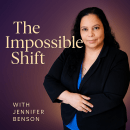Mindset Lifestyle Coaching Speakers
You've got a lineup to fill and want someone who can talk about mindset, lifestyle, and coaching without sounding like a self-help echo chamber.
Maybe you're asking, how do I find the right mindset lifestyle coaching speakers who actually connect with people and offer something real?
The kind who bring clarity instead of fluff, and who know how to make a room think, not just clap.
That's where this spotlight comes in.
You'll get a clear look at what mindset lifestyle coaching speakers actually do, who they're best for, and why they're worth your time.
Whether you're hosting a summit, podcast, or live event, these speakers bring practical tools, lived perspective, and a coaching style that resonates.
I've seen how the right speaker can shift the energy of a session - and how a flat one can stall momentum.
So this guide keeps it simple and focused on speakers who know their stuff and actually help people move forward.
Take a look and see which mindset lifestyle coaching speaker might be the right fit to book for your next event.
Top Mindset Lifestyle Coaching Speakers List for 2026
Rebecca Whitman
Transforming burned-out women into magnetic, abundant powerhouses
Gabriela Popescu
Transforming chaos into empowerment, one soul at a time
J. Lumen
Some people flip houses, others flip tables. I flips lives by flipping your switch!
Jennifer Benson
Change the way you see yourself — change the way the world sees you.
Karen Dwyer
Empowering lives with MS: coaching, speaking, and thriving
Jeff Cade
Transforming lives through mindset, diet, and active living
Jennifer Lyall
Intuitive Business Mentor & Chief Energy Optimizer
Aleksandra Rehar
Empowering you to lead with purpose and authenticity
Maria Perry
Empowering healers to thrive: Transform trauma into treasure
What Makes a Great Mindset Lifestyle Coaching Speaker
Think about someone like Mel Robbins. She doesn't just share tips - she walks you through the mental rewiring process. Great speakers in this space know how to blend science-backed strategies with personal development insights, all while keeping the audience engaged. They're not afraid to challenge limiting beliefs, but they do it with empathy and clarity.
What separates the good from the great is the ability to read the room. Whether it's a virtual summit or a live stage, these speakers adapt their energy, tone, and content to meet the audience where they are. They use storytelling, yes, but they also use frameworks - like the GROW model or habit-stacking - to give people something actionable to walk away with.
And here's the kicker: great mindset lifestyle coaching speakers don't just speak. They listen. They engage with the audience before and after the talk, they respond to comments, they ask questions. They're not just there to perform - they're there to connect. That's what makes them unforgettable.
How to Select the Best Mindset Lifestyle Coaching Speaker for Your Show
1. Define Your Audience's Needs.
- Are they entrepreneurs looking to overcome burnout?
- Are they corporate teams seeking better work-life integration?
- Or maybe they're individuals stuck in a fixed mindset?
Knowing this helps you filter speakers who specialize in those areas.
2. Research Speaker Profiles.
- Use platforms like Talks.co to explore speaker pages.
- Look for testimonials, past event clips, and topic lists.
- Check if they've spoken at similar events - for example, a speaker who's been on Mindvalley or GrowthDay likely knows how to engage a personal development crowd.
3. Evaluate Content Fit.
- Does their message align with your show's theme?
- Are they more mindset-focused, lifestyle-focused, or a blend?
- Watch for red flags like generic content or overused buzzwords.
4. Check Engagement Style.
- Do they interact well with hosts and audiences?
- Are they flexible in format - keynote, panel, Q&A?
- Look for clips where they handle live questions or adapt on the fly.
5. Reach Out and Connect.
- Use Talks.co to send a direct request or message.
- Be clear about your audience, format, and expectations.
- Ask for a short intro video or speaker reel if you're unsure.
Selecting the right speaker is about more than credentials - it's about chemistry, clarity, and contribution.
How to Book a Mindset Lifestyle Coaching Speaker
1. Start with a Clear Brief.
- Define your event type (virtual summit, podcast, webinar, etc.).
- Clarify your audience and what transformation you want them to experience.
- Identify your budget, date, and time zone.
2. Use a Speaker Discovery Platform.
- Head to Talks.co and browse by category or keyword.
- Filter by availability, speaking fee, or topic tags like 'mindset', 'habits', or 'life design'.
- Save your top picks to a shortlist.
3. Review Speaker Pages.
- Look for video clips, bios, and testimonials.
- Pay attention to how they describe their approach - do they focus on neuroscience, coaching frameworks, or lifestyle design?
- Check if they offer custom talks or only pre-set keynotes.
4. Reach Out with a Personalized Pitch.
- Use the contact form or direct message feature on Talks.co.
- Mention why you think they're a great fit.
- Include your event details and ask about availability.
5. Confirm and Prep.
- Once they accept, send a speaker agreement or confirmation email.
- Share your run-of-show, audience profile, and tech setup.
- Schedule a pre-event call to align on expectations.
Booking doesn't have to be complicated - it just needs structure. And when you use tools like Talks.co, you're not just finding speakers, you're building relationships that can elevate your entire event.
Common Questions on Mindset Lifestyle Coaching Speakers
What is a mindset lifestyle coaching speaker
At the core, these speakers help audiences understand how their thinking patterns influence their behaviors and outcomes. They dive into topics like fixed vs. growth mindset, habit formation, resilience, and identity shifts. But they don't stop at theory - they connect those ideas to everyday lifestyle choices, from morning routines to career transitions.
Unlike traditional life coaches who work one-on-one, mindset lifestyle coaching speakers scale their impact through keynotes, workshops, and virtual summits. They often use storytelling, real-world examples, and coaching tools like visualization or journaling prompts to make their message stick.
You'll find them speaking at events like Tony Robbins' Unleash the Power Within, corporate wellness conferences, or niche summits. Their goal? To help people rewire their thinking and redesign their lives - one insight at a time.
So if you're looking for someone who can shift perspectives and spark real change in a group setting, a mindset lifestyle coaching speaker is exactly who you want on your stage.
Why is a mindset lifestyle coaching speaker important
These speakers help bridge the gap between knowing and doing. They offer frameworks that help people move from stuck to strategic. For example, a speaker might teach how to use the 'habit loop' to break procrastination or how to reframe failure using cognitive behavioral techniques.
In corporate settings, they're brought in to address burnout, boost employee engagement, or support leadership development. In entrepreneurial circles, they help founders push past imposter syndrome or perfectionism. And in wellness communities, they guide people through identity shifts that support long-term change.
Their importance also lies in their ability to unify mindset and lifestyle. It's not just about thinking differently - it's about living differently. They help people align their daily actions with their long-term goals, which is something most traditional speakers don't cover.
Whether you're hosting a summit, running a team retreat, or launching a podcast series, bringing in a mindset lifestyle coaching speaker can elevate the experience from informative to transformative.
What do mindset lifestyle coaching speakers do
- Deliver Keynotes and Workshops. They speak at events, conferences, and summits - both virtual and in-person - on topics like mindset mastery, habit change, resilience, and lifestyle design.
- Facilitate Transformation. Through storytelling, exercises, and coaching frameworks, they help people identify limiting beliefs and replace them with empowering ones. Think of speakers like Brendon Burchard or Lisa Nichols - they don't just talk, they guide.
- Customize Content for Audiences. Whether it's a startup team in Berlin or a wellness retreat in Bali, these speakers tailor their message to fit the cultural and professional context of the group.
- Incorporate Coaching Techniques. They often use tools like visualization, journaling, or live Q&A to create interactive sessions. This coaching element sets them apart from traditional speakers.
- Support Long-Term Change. Many offer follow-up resources - like workbooks, online courses, or community access - to help attendees implement what they've learned.
In short, mindset lifestyle coaching speakers are catalysts. They don't just inform - they activate. And whether you're running a leadership summit or a personal growth podcast, they bring the kind of energy and insight that sticks long after the mic is off.
How to become a mindset lifestyle coaching speaker
1. Define Your Niche and Message.
- Are you focused on burnout recovery? High-performance habits? Spiritual alignment? Get specific.
- Tip: Use your own transformation or client results as the foundation of your message.
2. Build Your Coaching Credibility.
- Get certified (optional but helpful) through programs like ICF, Mindvalley, or Jay Shetty Certification School.
- Start coaching clients 1-on-1 or in groups. Testimonials go a long way.
3. Create Your Signature Talk.
- Structure it around a clear outcome: what will the audience walk away with?
- Use a 3-part framework: Story, Strategy, and Steps.
4. Set Up Your Speaker Page.
- Use platforms like Talks.co to create a professional speaker profile.
- Include your bio, talk titles, audience takeaways, and a short video clip.
5. Start Booking Speaking Gigs.
- Reach out to podcast hosts, virtual summit organizers, and event planners.
- Tip: Talks.co helps connect speakers with hosts. Use it to pitch your talk and get visibility.
6. Practice and Refine.
- Speak at local meetups, online summits, or even Instagram Lives.
- Ask for feedback and continuously improve your delivery.
7. Monetize and Scale.
- Offer coaching packages, digital courses, or memberships after your talk.
- Build an email list from every event you speak at.
This path isn't linear, but it's effective. Start small, stay consistent, and let your message evolve with your audience.
What do you need to be a mindset lifestyle coaching speaker
First, you need a strong foundation in mindset and lifestyle coaching. This typically includes:
- A deep understanding of mindset principles like neuroplasticity, belief systems, and emotional intelligence.
- Lifestyle coaching frameworks that address habits, routines, wellness, and personal development.
- Real-world experience, whether through coaching clients, running workshops, or applying these principles in your own life.
Second, you need speaking skills. This doesn't mean being a polished TEDx presenter from day one, but you should be able to:
- Communicate clearly and confidently.
- Engage diverse audiences with stories and practical insights.
- Handle Q&A sessions and adapt to different formats (keynotes, panels, podcasts).
Third, you need visibility. This is where platforms like Talks.co come in. By creating a speaker page, you can:
- Showcase your talk titles and topics.
- Share testimonials and past speaking clips.
- Connect directly with event hosts and podcast producers.
Finally, you need a business mindset. Speaking is a tool, not the end goal. Whether you're selling coaching programs, books, or memberships, your talk should lead to a next step.
In short, to be a mindset lifestyle coaching speaker, you need:
- Expertise in coaching.
- Communication skills.
- A platform to get booked.
- A strategy to turn speaking into income.
Combine these elements, and you're not just a speaker... you're a transformational guide with a mic.
Do mindset lifestyle coaching speakers get paid
Let's break it down:
1. Paid vs. Unpaid Gigs
- Newer speakers often start with unpaid opportunities like podcasts or virtual summits to build credibility.
- As you grow your brand and results, you can command higher fees for keynotes, workshops, and corporate training.
2. Factors That Influence Pay
- Audience Size: A 5,000-person conference pays more than a 50-person mastermind.
- Event Type: Corporate events tend to pay more than community-driven or nonprofit events.
- Speaker Reputation: A speaker with a bestselling book or large following can charge premium rates.
3. Alternative Compensation
- Many speakers earn through backend offers: coaching programs, online courses, or affiliate products.
- Some events offer travel, accommodation, and exposure instead of cash.
Quick Comparison Table:
| Speaker Level | Typical Fee Range |
|---|---|
| Beginner | $0 - $500 |
| Intermediate | $500 - $5,000 |
| Experienced | $5,000 - $20,000+ |
| Celebrity/Author | $20,000 - $100,000+ |
How do mindset lifestyle coaching speakers make money
1. Speaker Fees
- Keynotes at conferences, corporate trainings, and virtual summits.
- Rates vary based on experience, audience size, and industry.
2. Coaching Offers
- After a talk, many speakers pitch 1-on-1 or group coaching programs.
- Example: A speaker at a wellness retreat might offer a 12-week lifestyle reset coaching package.
3. Digital Products and Courses
- Online courses, ebooks, and memberships are scalable and evergreen.
- Example: A speaker might sell a $297 mindset mastery course after a free webinar.
4. Affiliate Marketing
- Promoting tools, books, or services that align with their message.
- Example: Recommending meditation apps or productivity tools with affiliate links.
5. Sponsorships and Brand Deals
- Especially for those with a strong online presence or niche audience.
- Example: A speaker focused on biohacking might partner with a supplement brand.
6. Licensing and Certification Programs
- Some speakers create their own coaching frameworks and certify others to teach it.
- Example: Brendon Burchard's High Performance Coaching model.
7. Books and Merchandise
- Self-published or traditionally published books often support speaking income.
- Merch like journals, planners, or affirmation decks can add passive revenue.
In short, speaking is often the front door. The real income comes from what happens after the talk. Smart mindset lifestyle coaching speakers build a business ecosystem around their message.
How much do mindset lifestyle coaching speakers make
Entry-Level Speakers
- Typically earn between $0 and $1,000 per talk.
- Often speak at virtual summits, podcasts, or community events.
- Rely on backend offers like coaching or courses to generate income.
Mid-Level Speakers
- Earn $1,000 to $5,000 per keynote.
- May have a published book, a growing email list, or a strong social media presence.
- Often combine speaking with group programs or online memberships.
High-Level Speakers
- Command $5,000 to $25,000+ per appearance.
- Frequently speak at corporate events, international conferences, or industry expos.
- Have multiple income streams: books, licensing, masterminds, and brand partnerships.
Top-Tier Speakers
- Earn $25,000 to $100,000+ per talk.
- Often bestselling authors, media personalities, or founders of major coaching brands.
- Example: Tony Robbins, Mel Robbins, or Lisa Nichols.
Average Annual Income Estimates
| Speaker Level | Estimated Annual Income |
|---|---|
| Beginner | $10,000 - $40,000 |
| Intermediate | $40,000 - $150,000 |
| Advanced | $150,000 - $500,000+ |
How much do mindset lifestyle coaching speakers cost
1. Free to $1,000
- Newer speakers or those building their portfolio.
- Often speak at podcasts, online summits, or community events.
- May accept exposure, testimonials, or leads instead of payment.
2. $1,000 to $5,000
- Mid-level speakers with coaching experience and a clear message.
- Suitable for wellness retreats, small business events, or niche conferences.
3. $5,000 to $20,000
- Experienced speakers with a strong brand, book, or media presence.
- Often hired by corporate clients, universities, or large summits.
4. $20,000 to $100,000+
- Celebrity-level speakers or bestselling authors.
- Typically headline major conferences or global events.
Additional Costs to Consider
- Travel and accommodation (unless virtual).
- Custom workshop materials or licensing fees.
- Post-event coaching or consulting packages.
Cost Comparison Table:
| Speaker Tier | Cost Per Talk |
|---|---|
| Beginner | $0 - $1,000 |
| Intermediate | $1,000 - $5,000 |
| Advanced | $5,000 - $20,000 |
| Celebrity | $20,000 - $100,000+ |
Who are the best mindset lifestyle coaching speakers ever
- Mel Robbins: Author of 'The 5 Second Rule', Mel blends neuroscience with practical tools for behavior change.
- Lisa Nichols: A powerhouse speaker from 'The Secret', Lisa focuses on abundance mindset and personal transformation.
- Jim Rohn: One of the original personal development speakers, Jim mentored Tony Robbins and shaped the coaching industry.
- Les Brown: Famous for his motivational storytelling, Les inspires audiences to overcome adversity and pursue greatness.
- Brendon Burchard: Creator of High Performance Academy, Brendon combines lifestyle design with productivity and mindset.
- Louise Hay: A pioneer in affirmations and self-healing, Louise's legacy continues through Hay House Publishing.
- Byron Katie: Known for 'The Work', Katie teaches a mindset method that challenges limiting beliefs.
- Gabby Bernstein: A spiritual mindset coach and speaker who blends wellness, meditation, and manifestation.
- Robin Sharma: Author of 'The Monk Who Sold His Ferrari', Robin speaks on leadership, mindset, and daily mastery.
Who are the best mindset lifestyle coaching speakers in the world
- Marie Forleo (USA): Creator of B-School, Marie speaks on mindset, entrepreneurship, and living a purpose-driven life.
- Sadhguru (India): A global spiritual leader and speaker who integrates mindset, yoga, and lifestyle transformation.
- Dr. Joe Dispenza (USA): Neuroscientist and speaker who teaches how to rewire the brain for success and healing.
- Robin Sharma (Canada): International speaker on leadership and mindset, known for 'The 5AM Club'.
- Lisa Nichols (USA): Continues to inspire globally with her message of abundance and self-worth.
- Vishen Lakhiani (Malaysia): Founder of Mindvalley, Vishen speaks on consciousness, personal growth, and lifestyle design.
- Mo Gawdat (Egypt/UAE): Former Google X executive and speaker on happiness engineering and mindset.
- Mel Robbins (USA): With a global following, Mel's practical mindset tools resonate across cultures.
- Julian Treasure (UK): Though more focused on sound and communication, his TED Talks on speaking and listening impact mindset and lifestyle deeply.
Common myths about mindset lifestyle coaching speakers
While formal education can help, it's not a requirement. Many successful speakers come from diverse backgrounds-entrepreneurship, fitness, education, even corporate leadership. What matters more is your lived experience, your ability to communicate transformation, and your credibility in your niche. Take Mel Robbins, for example. She's a former lawyer turned motivational speaker, and her 5 Second Rule method didn't come from a textbook-it came from real life.
Myth 2: Mindset coaching is just motivational fluff.
This one's common, especially among skeptics. But mindset lifestyle coaching speakers often integrate neuroscience, behavioral psychology, and habit formation techniques into their talks. Think of Dr. Joe Dispenza, who blends science with mindset work. The best speakers don't just hype you up-they give you frameworks to shift your thinking and take action.
Myth 3: You have to be extroverted and charismatic to succeed.
Not true. Some of the most impactful speakers are introverts who've mastered storytelling and presence. Susan Cain, author of 'Quiet', is a great example. Her TED Talk on the power of introverts has over 30 million views. Being authentic and clear beats being loud and flashy.
Myth 4: You can't make a living doing this.
Here's the deal: mindset lifestyle coaching speakers monetize in multiple ways-keynotes, online courses, group coaching, books, retreats, and even licensing their frameworks. The speaking gig is often just the tip of the iceberg. If you build a strong brand and know your audience, you can absolutely create a sustainable business.
Myth 5: It's all about personal development.
Not always. Mindset lifestyle coaching speakers are showing up in corporate wellness programs, sports teams, education systems, and even tech startups. The demand for mindset work is expanding beyond the self-help aisle. Companies like Google and Nike bring in mindset speakers to boost performance and resilience. So the field is broader than most people think.
Case studies of successful mindset lifestyle coaching speakers
Then there's Jay Shetty. A former monk turned speaker and coach, Jay took a different path. He started by creating short, wisdom-packed videos on Facebook. His content went viral, not because it was flashy, but because it was deeply relatable. He spoke about purpose, mindset, and relationships in a way that felt personal. Today, he's a bestselling author, podcast host, and speaker who's worked with major brands like Google and Accenture.
In the corporate world, Lisa Nichols stands out. She began as a single mom on public assistance and transformed her life through mindset work. Her speaking career took off after she appeared in 'The Secret', but she didn't stop there. She built a coaching empire, trained thousands of speakers, and became a go-to expert for mindset and abundance. Her story is a masterclass in turning personal growth into professional impact.
And let's not forget about regional voices making waves. In Southeast Asia, Mindvalley founder Vishen Lakhiani has built a global platform for transformational education. He often speaks on mindset and lifestyle design, blending Eastern philosophy with Western productivity. His talks have helped shift how people view personal development-not as a luxury, but as a necessity.
These stories show that there's no one path to success. Whether you start with a camera phone, a classroom, or a corporate cubicle, what matters is clarity of message, consistency of delivery, and a commitment to helping others shift their thinking.
Future trends for mindset lifestyle coaching speakers
First, digital-first delivery is no longer optional. Virtual summits, on-demand courses, and hybrid events have become the norm. Platforms like Zoom and Kajabi are enabling speakers to scale their message globally. But what's next? AI-powered coaching tools and interactive learning experiences. Imagine a speaker whose keynote includes real-time mindset assessments or personalized journaling prompts via an app.
Second, niche expertise is becoming more valuable than general motivation. Audiences are looking for speakers who understand their specific context-whether that's burnout in healthcare, resilience in remote teams, or confidence for first-gen college students. The era of the 'one-size-fits-all' speaker is fading. Customization is king.
Third, there's a growing demand for culturally relevant content. Speakers who can address mindset through the lens of identity, community, and social context are gaining traction. This means more opportunities for diverse voices from underrepresented regions and backgrounds to step into the spotlight.
Here are a few trends to watch:
- Personalized coaching integrations during talks (e.g. QR codes linking to mindset tools).
- Corporate partnerships focused on mental health and performance.
- Growth of micro-events and mastermind retreats.
- Use of storytelling AI to help speakers refine their message.
- Increased demand for multilingual speakers addressing global audiences.
As the world becomes more connected and more complex, the role of mindset lifestyle coaching speakers is expanding. Those who adapt, specialize, and innovate will thrive.
Tools and resources for aspiring mindset lifestyle coaching speakers
Canva. Whether you're designing slides for a keynote or creating social media content to promote your talks, Canva makes it easy. Use their presentation templates to keep your visuals clean and professional.
Kajabi. This all-in-one platform lets you host your coaching programs, courses, and even your speaker site. Many mindset speakers use Kajabi to monetize beyond the stage. Tip: Start with a mini-course to test your framework.
Calendly. Booking discovery calls, podcast interviews, or coaching sessions? Calendly automates the process and integrates with Zoom. Use custom links for different types of bookings.
Notion. Organize your talk outlines, client notes, and content ideas all in one place. You can even create a speaker dashboard to track your gigs, testimonials, and pitch templates.
TEDx Events Directory. Want to build credibility fast? Apply to speak at a local TEDx event. These talks often go viral and give you a platform to showcase your mindset framework.
Descript. If you're creating video content or podcast episodes, Descript makes editing super easy. You can remove filler words, add captions, and even repurpose talks into blog posts.
LinkedIn Creator Mode. Turn on Creator Mode to grow your audience and get discovered by event organizers. Post short insights, share clips from your talks, and engage with your niche.
Bonus Tip: Join speaker directories like SpeakerHub or Women Speakers Association if you're targeting event planners. These platforms help you get found by organizers looking for fresh voices in mindset and lifestyle coaching.









